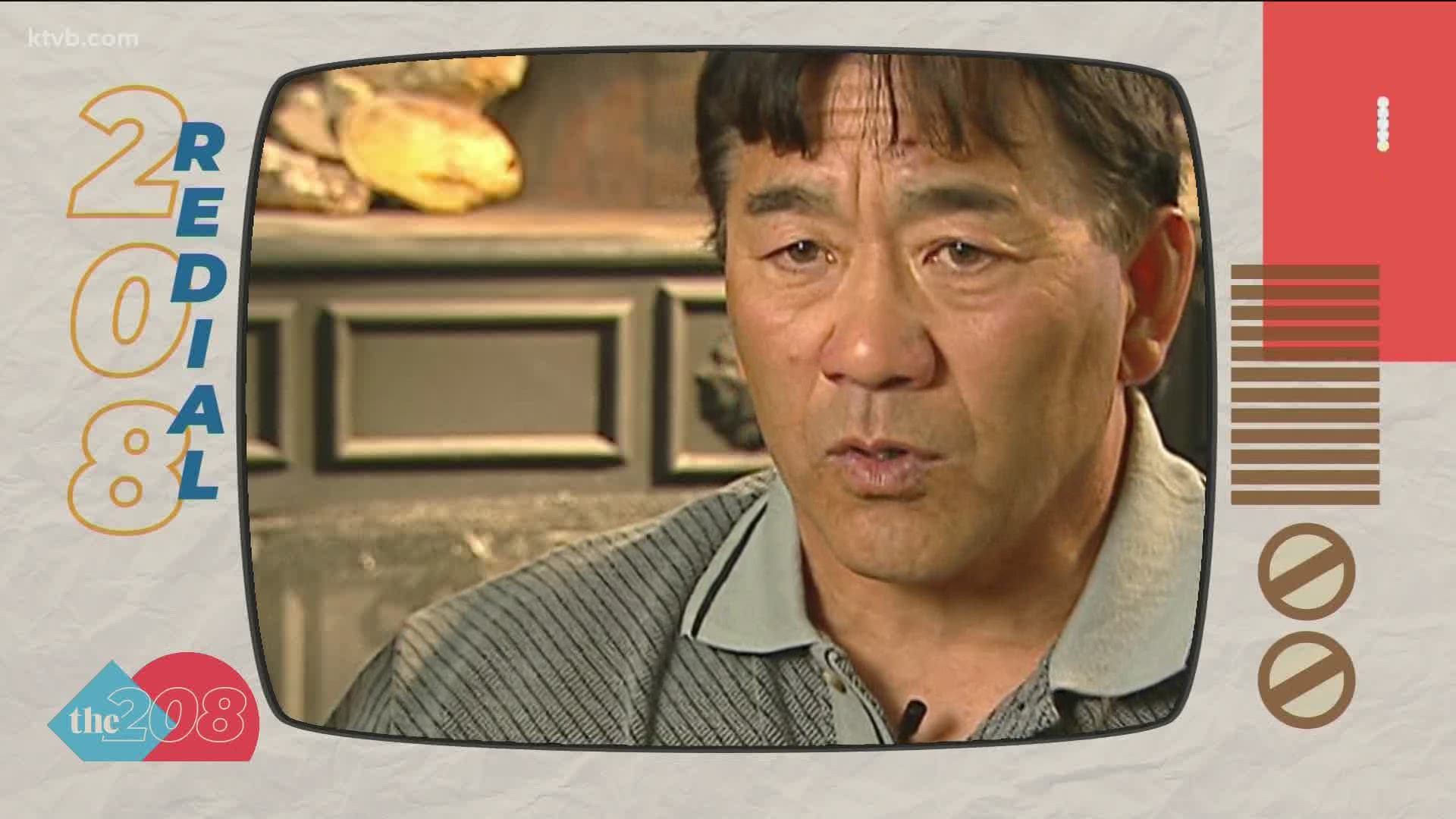KETCHUM, Idaho — In 2001, a KTVB reporter spoke with a man who was born inside a Japanese internment camp on the grounds of a race track in Topaz, Utah, 150 miles south of Salt Lake City.
19 years ago, Rod Tatsuno, who lived in Ketchum at the time, shared home videos with KTVB reporter Alyson Outen. The home videos were taken by his father, Dave Tatsuno.
At the time, the videos were the only known ones taken inside an internment camp.
Outen spoke with Tatsuno about what he remembers about life inside an internment camp after World War II.
"We look at it differently than 'tah dah,' it's the start of the war, it was patriotism, was everything else," Tatsuno said. "For us, it was a question of our patriotism."
At the time, the Tatsuno family had lived in the United States for more than half a century. They were business owners.
But in 1942, they lost almost everything during an 'evacuation sale.' One month later, they each packed one bag, and like tens of thousands of Japanese-Americans, they were forced into an internment camp.
Rod's father, Dave, managed to hang on to his 'Bell & Howell' camera and filmed day to day life inside the camp.
"If we didn't have anything else, we had the beauty of the sunsets in the deserts of Utah in Topaz, even behind the barbed wire," Dave narrated in the film.
Nearly 10,000 detainees lived in tar paper barracks in Topaz, including Rod, who spent the first three years of his life behind the barbed-wire fence.
In 1945, the Tatsuno family left Topaz and returned to their home in San Fransisco.
Twenty years later in 1965, Rod was drafted into the U.S. Army where he became a tank platoon leader.
In 1970, he moved to Ketchum, Idaho where he worked for the Sun Valley Ski School for more than 40 years. He now lives in Colorado with his wife, where they can be closer to their grandchildren.
In 1989, each interned member of the Tatsuno family received $20,000 in redress money.
During the 1998 Olympic Winter Games in Nagano, Japan, Rod gave a family heirloom, a gold ring, to Wood River Valley skier Picabo Street as a token of good luck. She had won silver in the 1994 games and would go on to win gold in Nagano.
In 2002, he did the same thing for Muffy Davis in Salt Lake City and for Ketchum's Elitsa Storey in Torino in 2006.
That same year, Dave passed away at the age of 92. His film is now one of only two home movies in the Library of Congress.
"It's pretty wild, you just don't think of it that way because it was something that had to do with family," Dave said. "Suddenly you find out it has something to do with national consciousness."
In 1999, Snow Falling on Cedars was released in theaters. The film depicts the prejudice Japanese-Americans faced in the U.S. shortly after World War II.
"It was little difficult looking at it. My sister and I held hands. It just brought back...," Rod said as he put his head in his hands and cried during our interview.
Editor's Note: This story originally aired in 2001.
Dial it back with more 208 Redials:
See all of the latest episodes of the 208 Redial in our YouTube playlist:

